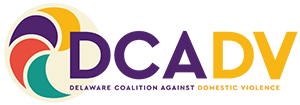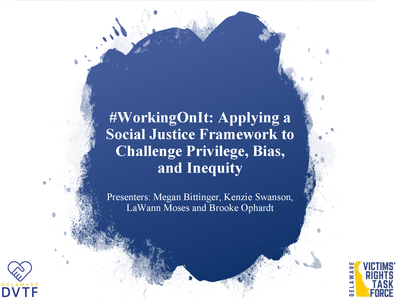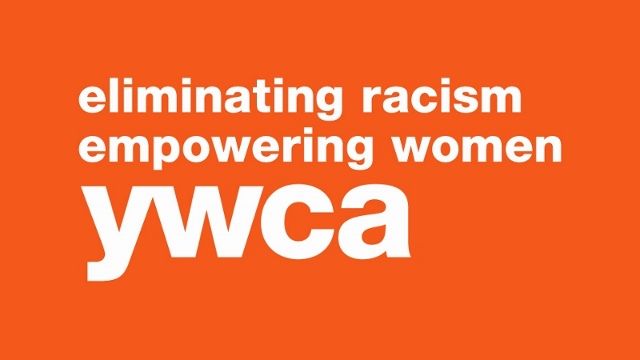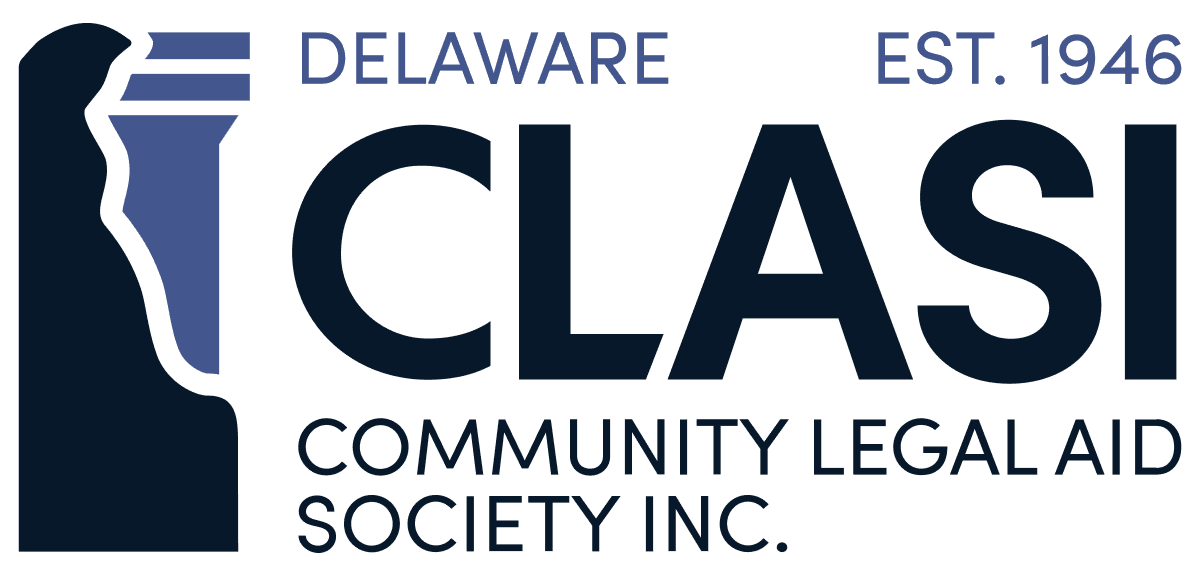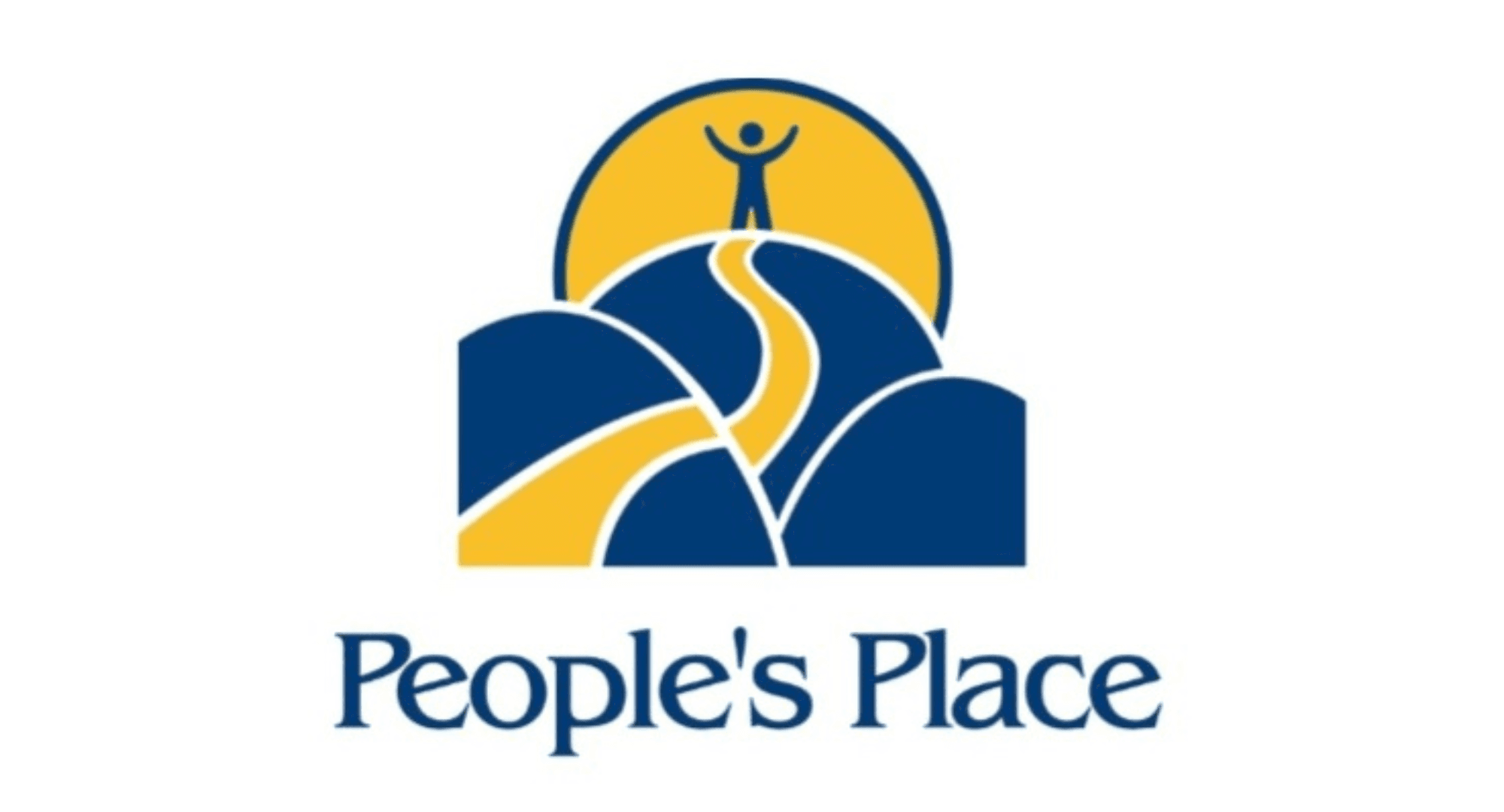#WorkingOnIt- Foundations of Social Justice In Our Work
-
Recorded May 2020; 43 minutes
-
Access password: 7Y!^92*4
This webinar, presented by the Joint Task Force Social Justice Subcommittee, was originally presented as an interactive three-part series. This comprehensive recording covers the material from all three sessions. The times for each part are noted in the descriptions below, so you can move around the recording as needed.
Part 1 (Foundations of Social Justice in Our Work- 00:00-14:40) discusses common ideas about social justice- going beyond the basics to how social justice applies in the field of domestic and sexual violence. The presenters define social justice in a broader sense and large scale concepts, then narrow down how this applies to us as individuals and our works as advocates.
Part 2 (Challenging Privilege, Bias, and Inequity- 14:40-24:50) builds off of the foundations learned in the previous (but not required) webinar. During this session, we apply the concepts of privilege, bias, and equity in a virtual group activity. Through the eyes of others, we challenge our own thoughts and assumptions and look at how this affects the clients we serve. (Note: due to the structure of this webinar, there is not a recording available.)
Part 3 (Putting Your Toolkit Into Action- 24:50-43:51) the presenters demonstrate resources and activities complied in the Social Justice Toolkit. Whether you are a director or manager and have the ability to make agency-level change or an individual advocate just looking to do better, we will walk through how to utilize this toolkit to create positive social change.
Presenters:
- Megan Bittinger, Co-Chair, Joint Task Force Social Justice Subcommittee
- LaWann Moses, Joint Task Force Social Justice Subcommittee
- Brooke Ophardt, Joint Task Force Social Justice Subcommittee
- Makenzie Swanson, Co-Chair, Joint Task Force Social Justice Subcommittee
Learning Objectives:
By the end of this webinar, participants will be able to:
- Define the concept of social justice.
- Explore how their own privilege and bias can affect the services they provide.
- Identify barriers to service that may exist because of someone's identity/identities.
- Utilize tools to continue these conversations about social justice in their own agency/organization.
Helpful Links and Resources:
-
This version was used during the live webinar on 05/06/20.
-
This narrative is used in the webinar recording, and is slightly different than the version used in the live webinar on 05/06/20.
Funding for this webinar was made possible in part by DH19-2343, through the Delaware Criminal Justice Council by the U.S. Department of Health and Human Services, Administration for Children and Families, Family Violence Prevention and Services Program. The views expressed in written conference materials or publications and by speakers and moderators do not necessarily reflect the official policies of the Department of Health and Human Services nor does mention of trade names, commercial practices, or organizations imply endorsement by the U.S. Government.
